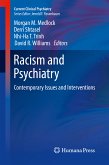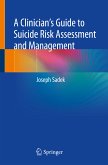There is a broadening international consensus that the level of psychiatric clinical knowledge and skills has declined alarmingly, to the point of threatening psychiatry's survival as an academic medical discipline. This is a consequence of the complete educational domination by the operational diagnostic manuals and manuals for structured interviewing, which are too often viewed as the only sources of theoretical and clinical knowledge. The purpose of this book is to offer an alternative: to provide an exposition of psychiatric interviewing that is theoretically and clinically well founded and to supply the reader with a coherent framework for performance of a thorough psychiatric examination. The goal is not to come up with yet another interview scheme but to facilitate an understanding of the basic (but, today, completely neglected) tenets of psychopathology and phenomenology. This exposition targets the disorders of subjectivity (consciousness), the second-person processes involved in converting subjective, first-person and observable data into a third person, diagnostically useful, format. In addition, the most pertinent clinical descriptions concerning the major diagnostic groups are presented and discussed.
Dieser Download kann aus rechtlichen Gründen nur mit Rechnungsadresse in A, B, BG, CY, CZ, D, DK, EW, E, FIN, F, GR, HR, H, IRL, I, LT, L, LR, M, NL, PL, P, R, S, SLO, SK ausgeliefert werden.









